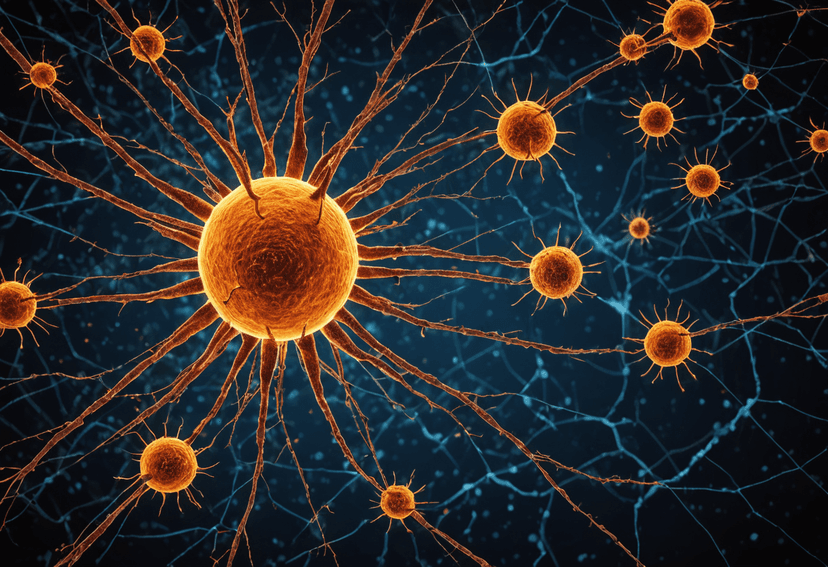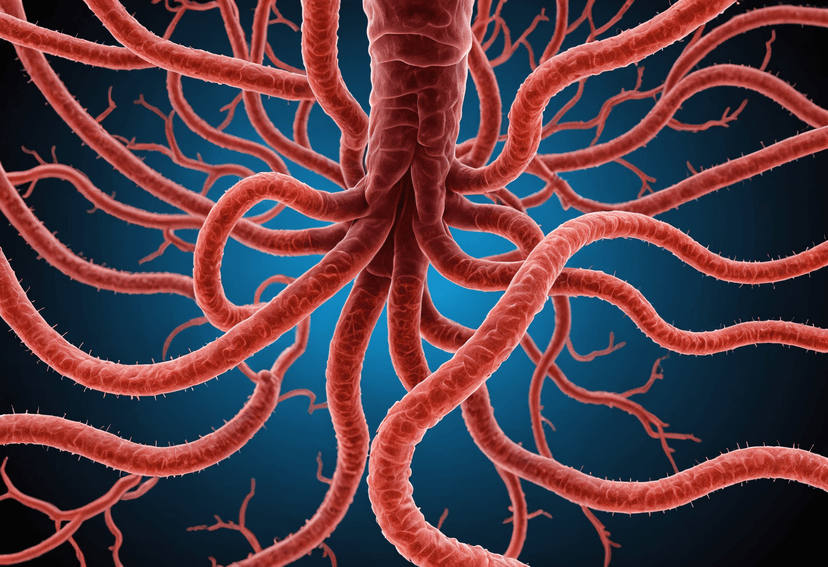
Carcinoid Tumors: The Hidden Dangers
30 Sep, 2024
 Healthtrip
HealthtripCarcinoid tumors are a type of rare and often misunderstood cancer that can affect anyone, regardless of age or health status. They are a type of neuroendocrine tumor that develops in the cells that produce hormones, and can occur in various parts of the body, including the lungs, gastrointestinal tract, pancreas, and other organs. Despite their rarity, carcinoid tumors can have a significant impact on a person's quality of life, and it's essential to be aware of the hidden dangers they pose.
What are Carcinoid Tumors?
Carcinoid tumors are slow-growing, small, and usually benign tumors that develop in the neuroendocrine cells, which are responsible for producing hormones that regulate various bodily functions. They can occur in different parts of the body, but most commonly affect the lungs, small intestine, and pancreas. Carcinoid tumors can be classified into three types: functioning, non-functioning, and malignant. Functioning tumors produce excess hormones, which can cause a range of symptoms, while non-functioning tumors do not produce hormones and may not cause symptoms until they grow large enough to press on nearby organs. Malignant tumors are cancerous and can spread to other parts of the body.
Most popular procedures in India
Symptoms of Carcinoid Tumors
The symptoms of carcinoid tumors vary depending on the location of the tumor, its size, and whether it produces excess hormones. Common symptoms include diarrhea, abdominal pain, flushing of the skin, wheezing, and shortness of breath. In some cases, carcinoid tumors may not cause any symptoms until they have grown large enough to press on nearby organs or have spread to other parts of the body. This is why it's essential to be aware of the hidden dangers of carcinoid tumors and to seek medical attention if any unusual symptoms persist.
Wellness Treatments
Give yourself the time to relax
Lowest Prices Guaranteed!

Lowest Prices Guaranteed!
Risk Factors and Causes of Carcinoid Tumors
The exact causes of carcinoid tumors are not fully understood, but several risk factors have been identified. These include a family history of carcinoid tumors, genetic syndromes such as multiple endocrine neoplasia type 1 (MEN1), and exposure to certain environmental toxins. Additionally, people with certain medical conditions, such as Crohn's disease or ulcerative colitis, may be at a higher risk of developing carcinoid tumors.
Diagnosis and Treatment of Carcinoid Tumors
Diagnosing carcinoid tumors can be challenging, as the symptoms can be similar to those of other conditions. A combination of imaging tests, such as CT or MRI scans, and laboratory tests, such as blood and urine tests, may be used to diagnose carcinoid tumors. Treatment options vary depending on the size, location, and type of tumor, as well as the overall health of the patient. Surgery, chemotherapy, and hormone therapy may be used to treat carcinoid tumors.
The Hidden Dangers of Carcinoid Tumors
Carcinoid tumors can have a significant impact on a person's quality of life, even if they are benign. The excess hormones produced by functioning tumors can cause a range of symptoms, including diarrhea, flushing, and wheezing, which can be debilitating and affect daily life. In addition, carcinoid tumors can grow large enough to press on nearby organs, causing pain and discomfort. Malignant tumors can spread to other parts of the body, reducing life expectancy and affecting overall health. It's essential to be aware of the hidden dangers of carcinoid tumors and to seek medical attention if any unusual symptoms persist.
Moreover, carcinoid tumors can also have a significant emotional and psychological impact on patients and their families. The uncertainty and unpredictability of the disease can cause anxiety, depression, and fear, which can affect relationships and daily life. It's essential to seek support from healthcare professionals, family, and friends to cope with the emotional and psychological challenges of carcinoid tumors.
Awareness and Education: The Key to Coping with Carcinoid Tumors
Awareness and education are essential for coping with carcinoid tumors. By understanding the risks, symptoms, and treatment options, patients and their families can make informed decisions about their care and take control of their health. Additionally, awareness and education can help to reduce the stigma associated with carcinoid tumors and provide support to those affected by the disease. It's essential to raise awareness about carcinoid tumors and to educate healthcare professionals, patients, and families about the hidden dangers of this rare and often misunderstood disease.
Related Blogs

The Uncharted Territory of T-Cell Lymphoma
T-cell lymphoma is a type of cancer that affects the

The Uncharted Territory of Small Intestine Cancer
Small intestine cancer is a rare type of cancer that

The Uncharted Territory of Thymoma
Thymoma is a rare type of cancer that affects the

The Forgotten Cancer: A Look into Appendix Cancer
Appendix cancer is a rare type of cancer that affects

Cancer's Dark Horse: Understanding Adenoid Cystic Carcinoma
Adenoid cystic carcinoma is a rare type of cancer that

Liposarcoma: The Fat Cancer
Liposarcoma is a type of cancer that affects the fat










